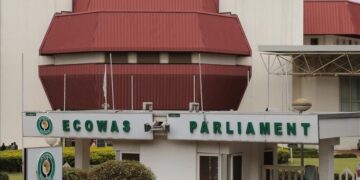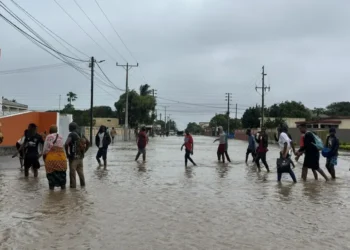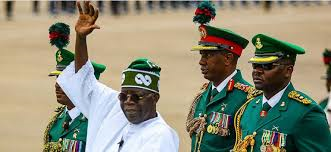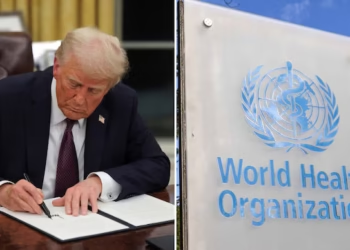The Economic Community of West African States (ECOWAS) lifted economic and travel sanctions on Niger, Mali, and Burkina Faso on Saturday, February 24, with immediate effect.
These sanctions, which included restrictions on travel, commercial activities, and economic transactions, were initially implemented as measures to address military coups that occurred in the respective countries in 2023, 2022, and 2021.
The decision to lift the sanctions was confirmed by Omar Alieu Touray, President of the ECOWAS Commission, following a meeting of the bloc held in Abuja, Nigeria’s capital. This move signifies a step towards normalizing relations and fostering dialogue in the region, aiming to mitigate the impact of the sanctions on the affected countries and their citizens.
Touray emphasized that the lifting of sanctions was motivated by humanitarian concerns and aimed at alleviating the suffering experienced by these countries. The summit convened to address pressing challenges confronting the region and to urge three military-led nations—Niger, Mali, and Burkina Faso—to reconsider their decisions to withdraw from the bloc. These nations had been suspended from ECOWAS following recent coups, and despite declaring their intention to permanently withdraw, ECOWAS has called for their return.
While certain sanctions on individuals in Mali and aspects of junta-led Guinea have also been lifted, ECOWAS stated that targeted and political sanctions would remain in place for Niger, although specific details were not provided. This move by ECOWAS reflects a concerted effort to foster dialogue, ease tensions, and promote stability in the region amidst ongoing political upheavals.
Reporting from the summit in Abuja, Al Jazeera’s Ahmed Idris said, “Almost all the sanctions imposed on Niger have been lifted,” including land, sea, and air blockades, and sanctions barring Niger from economic and financial institutions in the region.
However, ECOWAS placed “some conditions” on the lifting of the sanctions, he added. “They want the immediate release of President Mohamed Bazoum and members of his family.”
Niger’s President Bazoum was deposed in a military coup last July, prompting ECOWAS to suspend trade and impose sanctions on the country. He is still imprisoned in the presidential palace in Niamey. On the eve of the summit, his lawyers urged ECOWAS to demand his release.
Earlier this week, ECOWAS co-founder and former Nigerian military leader General Yakubu Gowon also called for the bloc to lift “all sanctions that have been imposed on Burkina Faso, Guinea, Mali, and Niger.”.
“Even before today’s summit, there has been a change in tone, in language, and also in the approach of ECOWAS entirely to the sanctions and embargoes imposed on these three West African countries,” Idris said.
Easing sanctions is seen as a gesture of appeasement as ECOWAS tries to persuade the three states to remain in the nearly 50-year-old alliance and rethink a withdrawal. Their planned exit would undermine regional integration efforts and bring a messy disentanglement from the bloc’s trade and services flows, worth nearly $150 billion a year.
ECOWAS on Saturday gave the three military-led countries “an opportunity to be members of the organisation once again,” Idris said, adding that they asked them to be part of “technical discussions of the ECOWAS bloc” without restoring them as full-participating heads of state at summits or major conferences.
After Mali, Burkina Faso, and Niger announced that they would permanently withdraw from the alliance and formed a grouping called the Alliance of Sahel States, “the ECOWAS institution itself was shaken,” Idris said.
“[ECOWAS] is an organisation that is gradually losing its steam, and there is the danger of it being fragmented… There is also the concern that unless ECOWAS brings these people back into the fold, there is the danger of coups spreading in West Africa,” he added.
































